I'm a Doctor And Here Are 10 Ways to Protect Yourself Against the Next COVID Wave
Here’s how to stay safe.
COVID-19 cases have been rising nationwide for more than a month, well before the official start of fall. Cooler weather and the holiday season are just around the corner, and more people spending time indoors and in large gatherings provide more opportunities for the virus to spread. So how can you protect yourself, now and against whatever this fall and winter's waves might hold? These are the best ways, according to doctors.
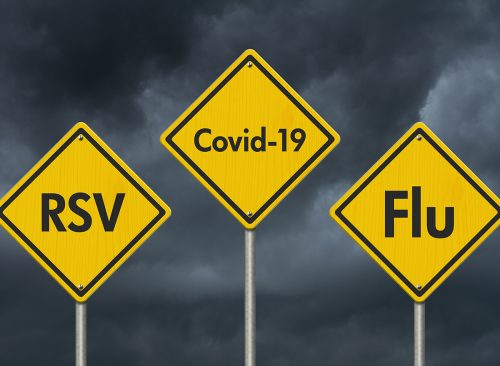
Health experts are concerned that this fall and winter may bring a "tripledemic" in which healthcare providers and hospitals are slammed with patients suffering from COVID, the flu, RSV—or some combination of the viruses. "Getting vaccinated against all three is actually the best way to reduce the chance of having a peak convergence where we see a really big surge in respiratory illness that could overwhelm hospitals," epidemiologist Dr. Sarah Kemble recently told Hawaii News Now.

"Everybody aged 6 months and older is recommended to receive the influenza vaccine as well as the COVID-19 vaccine," Dr. William Schaffner, professor of medicine in the Division of Infectious Diseases at the Vanderbilt University School of Medicine, told KLAS on Wednesday. "For people aged 60 and older, have a conversation with your doctor and you may be eligible for the RSV vaccine."
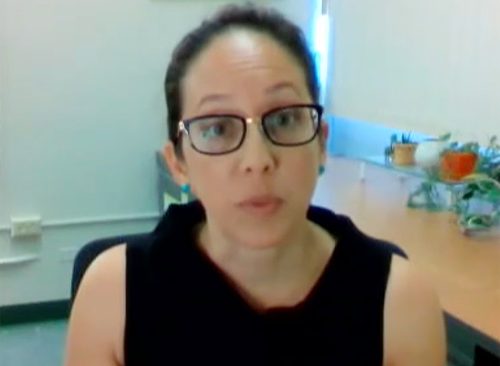
If you just had COVID, "You could probably wait about three months or 90 days," said Kemble. "The idea being that when you've had recent infection, it probably was with the current circulating strain, that's why you got it recently. And so your natural immunity will also provide some protection."
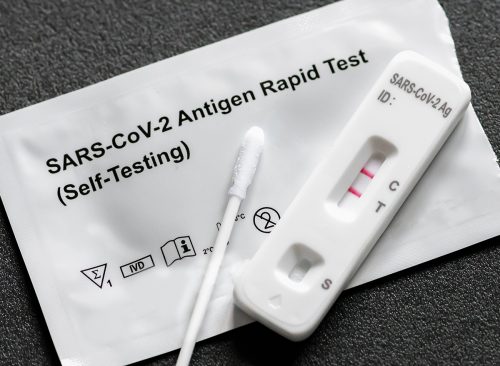
"All of these respiratory viruses produce similar symptoms; sore throats, stuffy nose, sometimes a cough, some fever more or less achy and pain or feeling kind of crummy," said Schaffner. "In the beginning, it's very difficult even for an experienced infectious disease doctor to tell them apart, that's why we have the tests available."
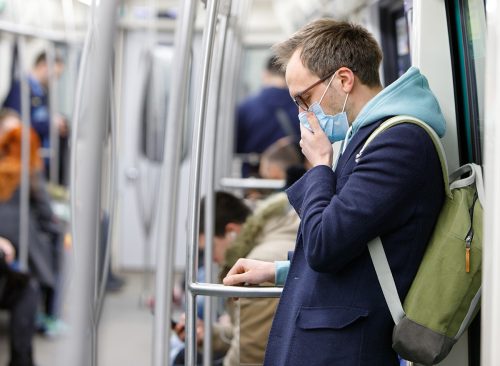
Carry a mask with you and put it on if you hear someone coughing in your vicinity—for example, in a movie theater or on a bus, advises infectious disease expert Dr. Eric Simões of the University of Colorado School of Medicine.
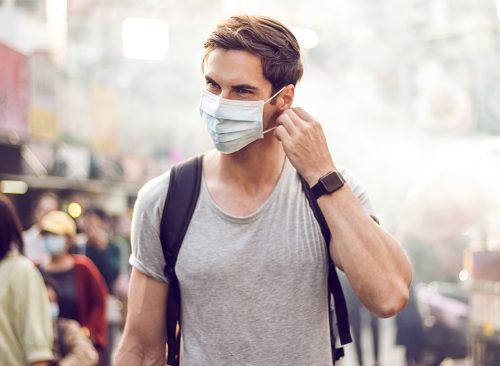
"What I would recommend is that everybody do their own risk assessment" when choosing to mask," said Dr. Jason Bowling, an epidemiologist with University Health in San Antonio, Texas. "I would recommend if you're at high risk for complications or severe illness from COVID-19, meaning if you're over 65, if you have underlying medical illness, if your immune system is compromised for medications or underlying illness, I would recommend wearing a well-fitted, high-quality mask. If you're going to go into a large public crowded setting I would definitely consider that because there are going to be people in that setting who have minimal or asymptomatic COVID-19 that potentially transmit to you."
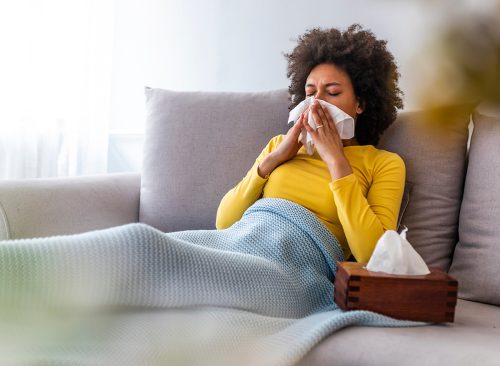
"One of the most important precautions is if people are sick, we should stay home," Dr. Dennis Cunningham, Medical Director of Infection Prevention at Henry Ford Health System, told CBS Detroit this week. "Don't go to the office. Don't send your kid to school. The last thing we need is lots of viruses being spread."
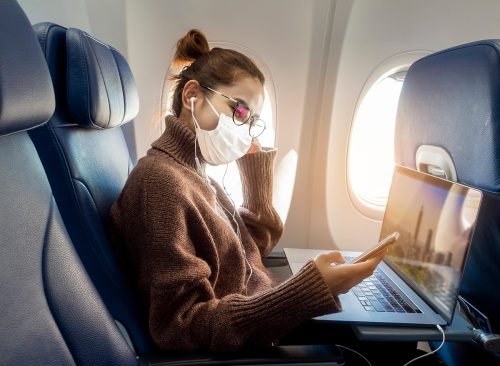
Always wear a mask when flying and turn your seat's individual air nozzle to its highest setting, advises Simões. You might want to plan ahead and wear warmer clothes.
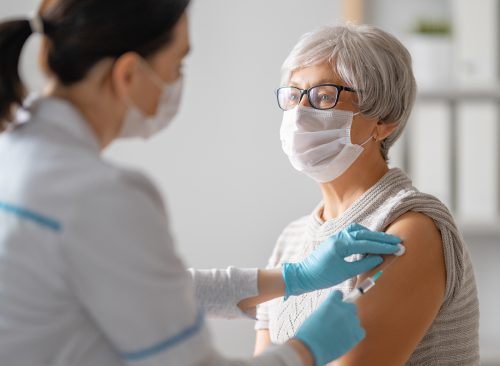
For everyone else, "Because the effectiveness of the flu and COVID-19 vaccines can wear off after six months, it makes the most sense to get these vaccines in late October or November before the anticipated peak of illness during wintertime," Dr. Scott A. Rivkees of the Brown School of Public Health wrote this week in Time magazine. "Flu and COVID-19 vaccines can be given simultaneously. Still, since the RSV vaccine is new, it has been recommended to wait two weeks after the RSV vaccine before other immunizations until more data are available."
RELATED: Surprising Signs You've Already Had COVID
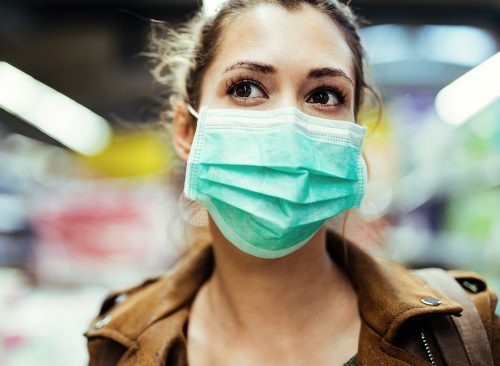
"Common sense public health measures also play a role in combatting the tripledemic, as we can spread viruses to others when we are infected," said Rivkees. "First, we must avoid others, especially those with vulnerabilities, when ill. We also now have home testing available to diagnose each virus separately or in combination. This can lead to prescribing antiviral medication and treating symptoms when coupled with telemedicine or in-person office visits. Mask use may also be considered in high-risk settings, especially for those who are medically vulnerable."















